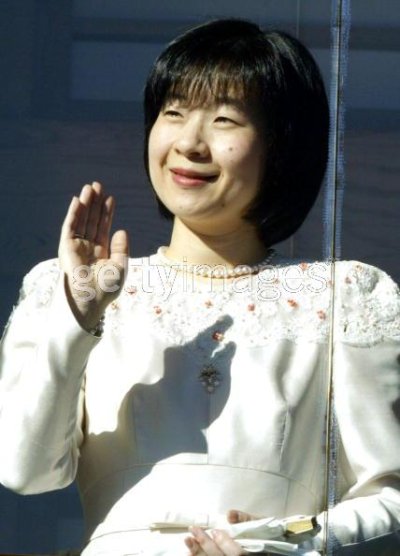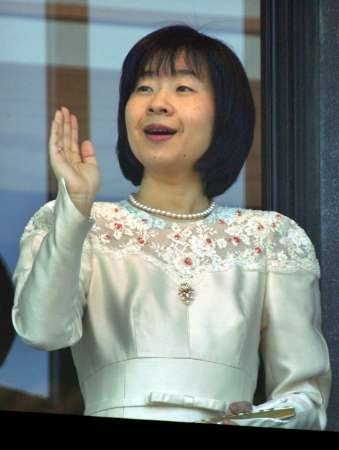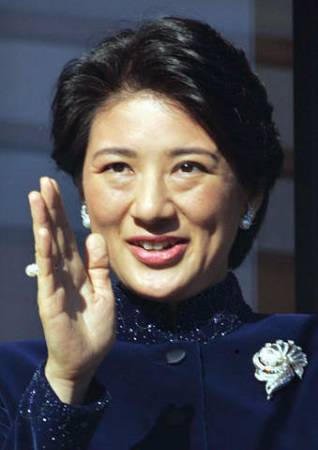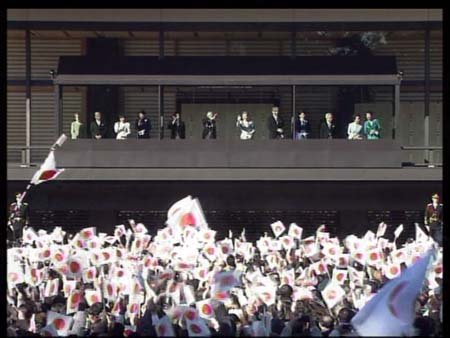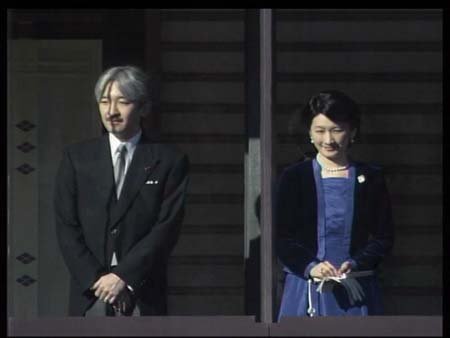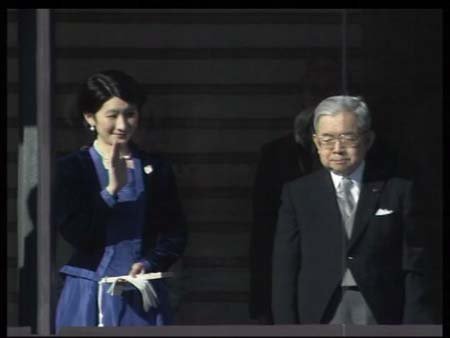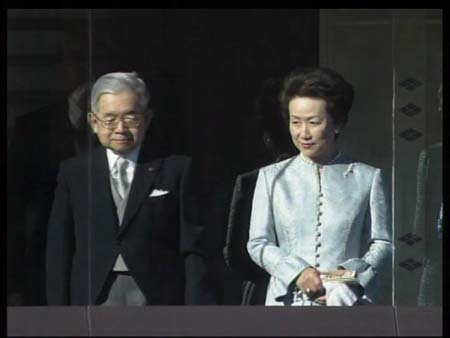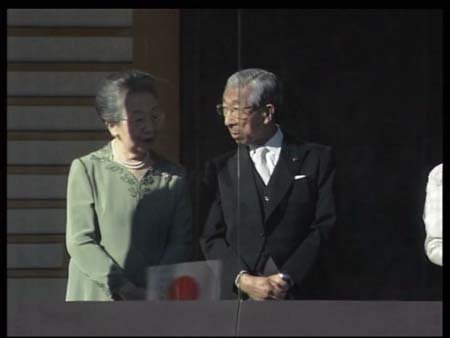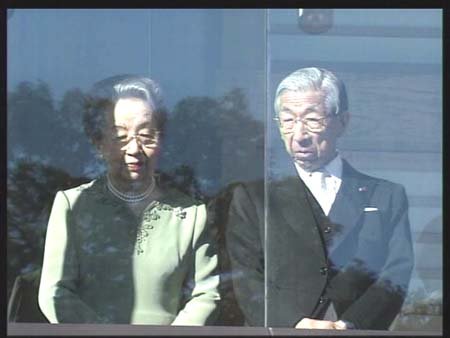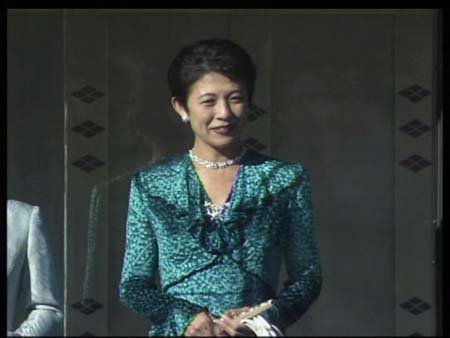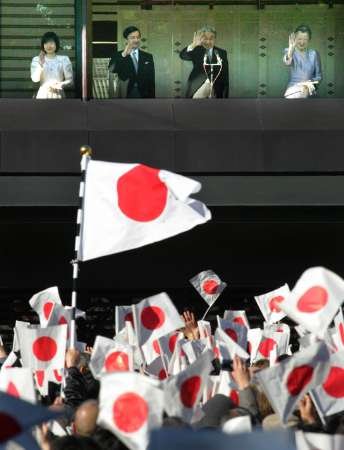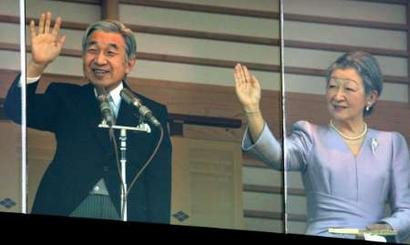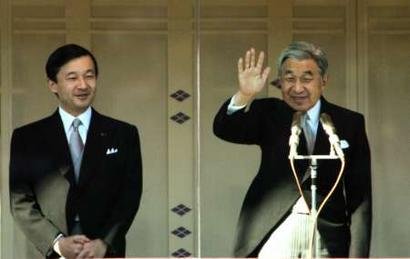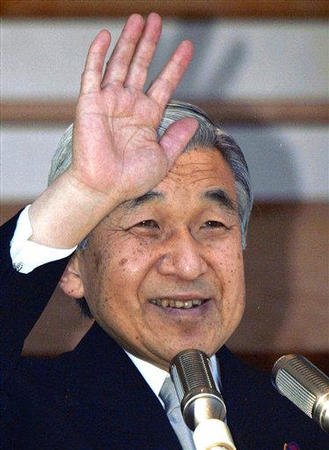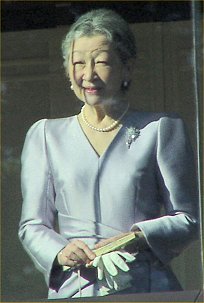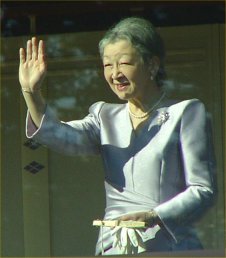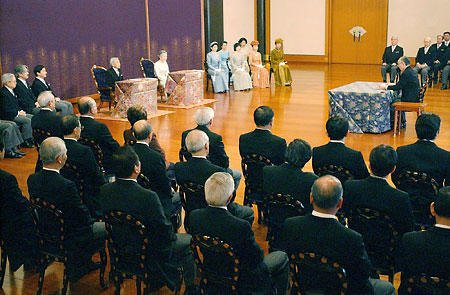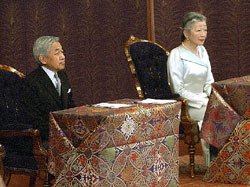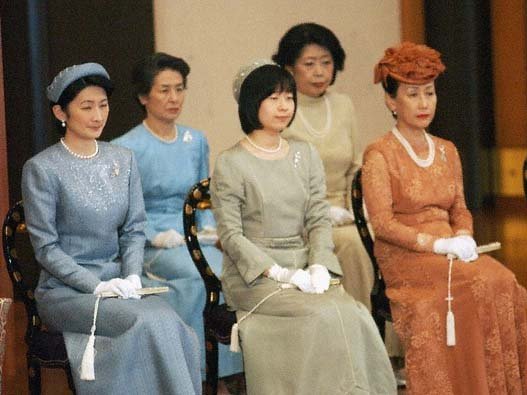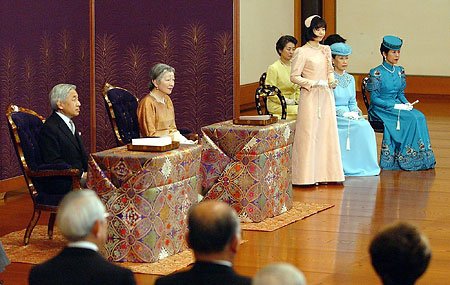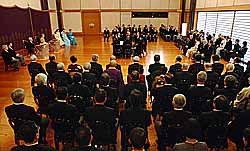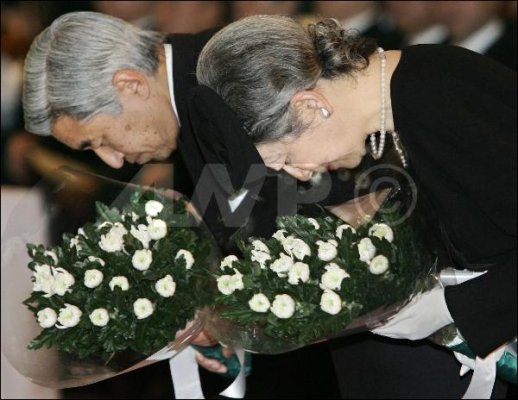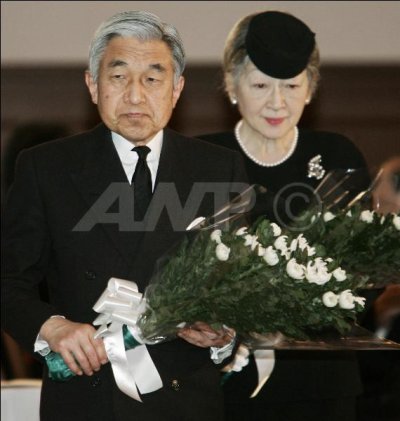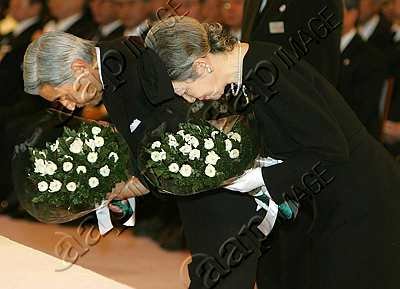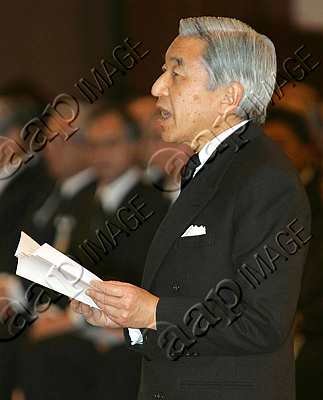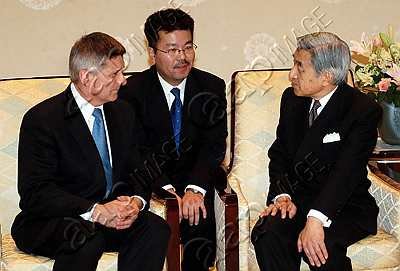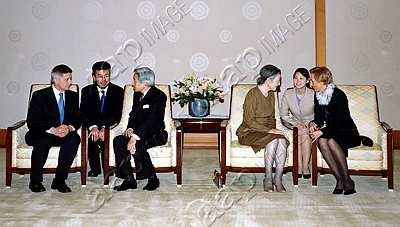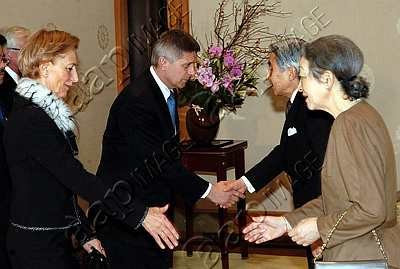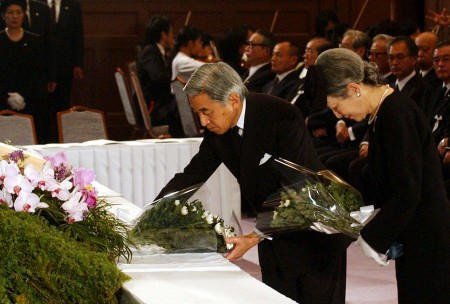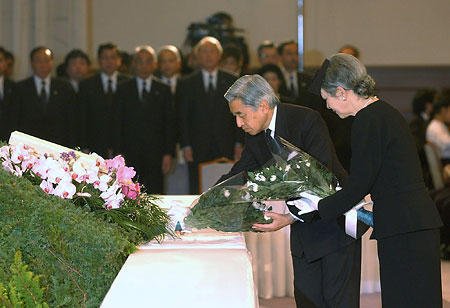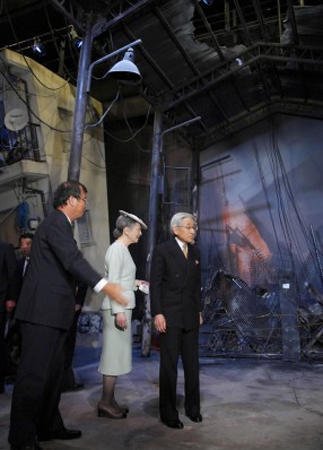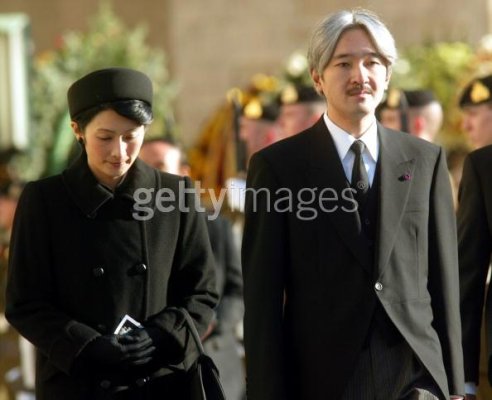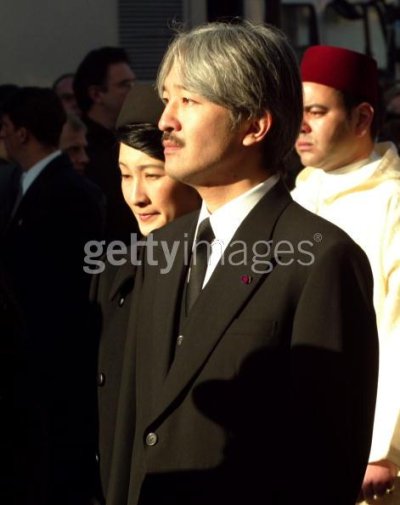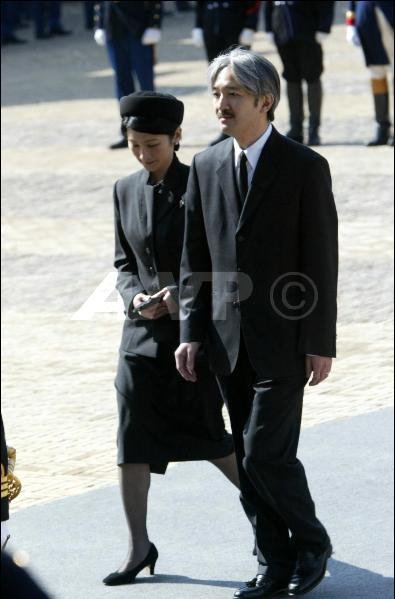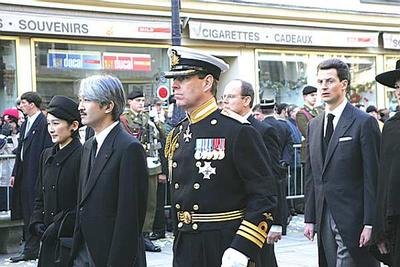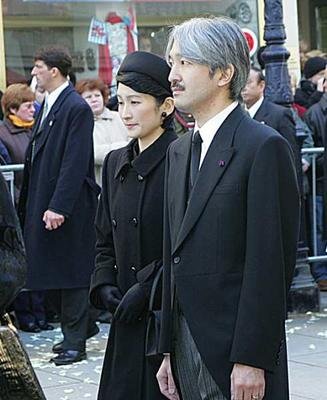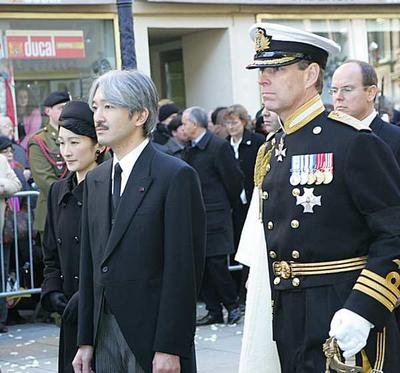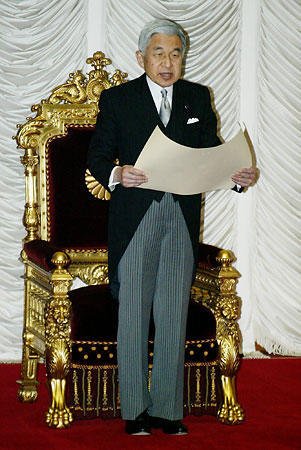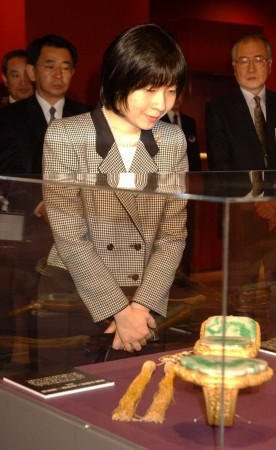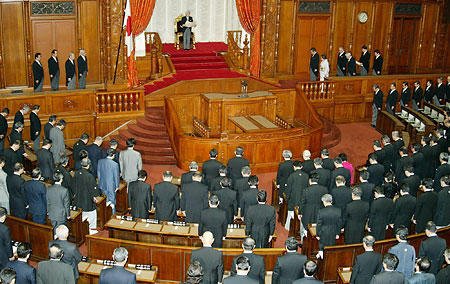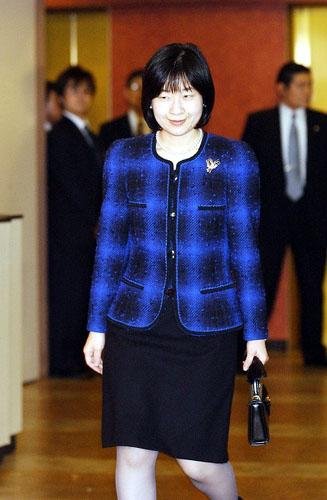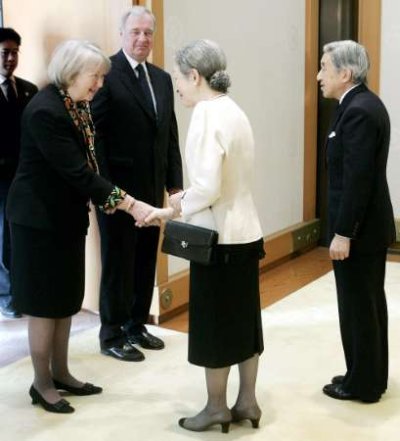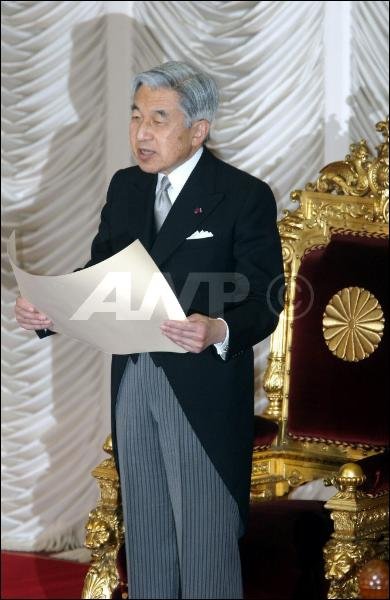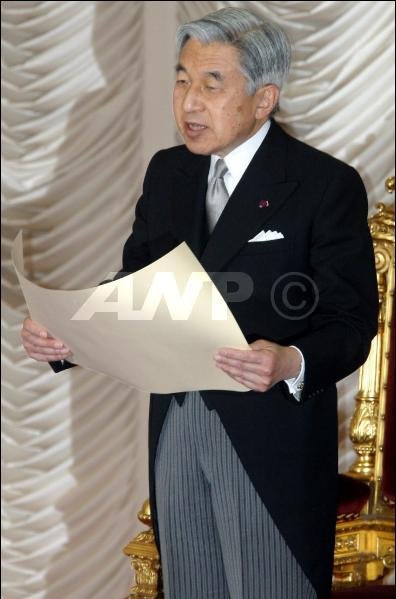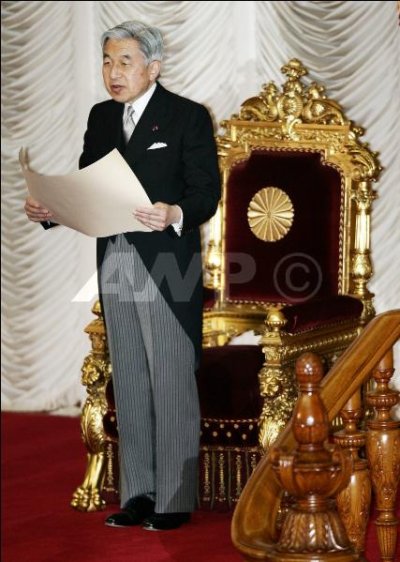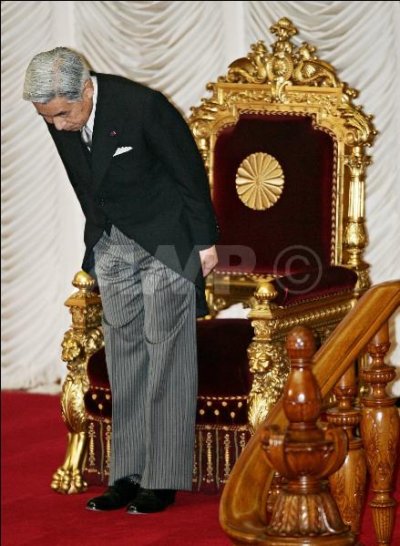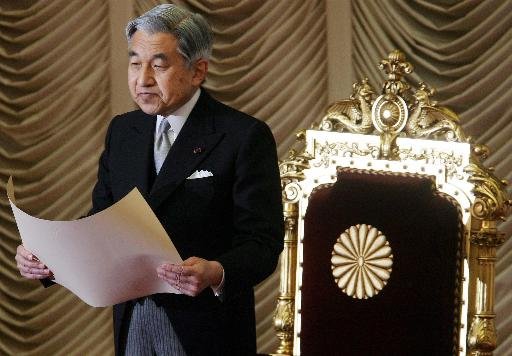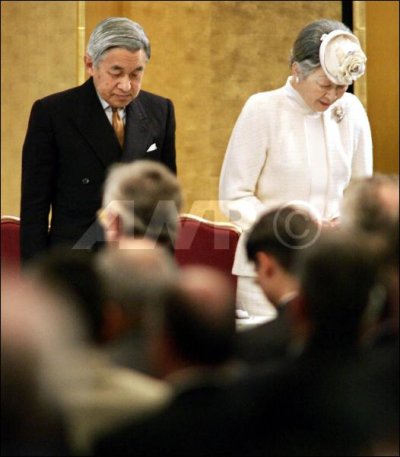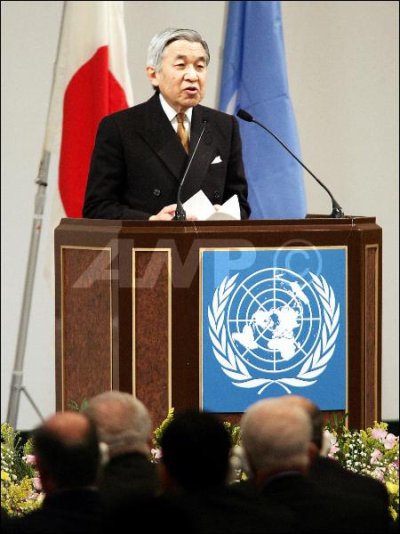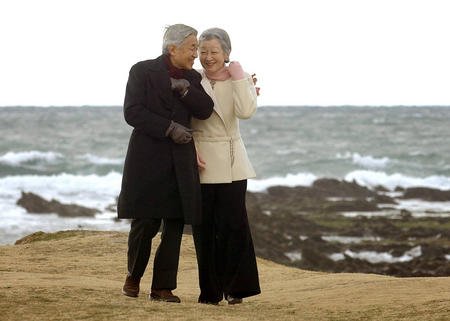●Ceremony of the Utakai Hajime (Imperial New Year's Poetry Reading)
Mandy said:
Thank you for the article and the pictures merampo. Masako was not present at this event?
Yes,Princess Masako was absent....
●Ceremony of the Utakai Hajime (Imperial New Year's Poetry Reading)
A New Year Poetry Reading is a gathering of people who get together to read a collection of poems on a common theme to a wider audience. This practice was already in usage during the Nara Period, and became known through the famous volume of Japanese poetry, the
Manyoshu.
An Imperial Poetry Reading is the same as the above-mentioned description, the only difference being that the poetry reading is convened by His Majesty the Emperor. As part of the annual events at the Imperial Palace, every month a Poetry Reading came to be held. Of these monthly Poetry Readings, the Imperial Poetry Reading was held as the first such party of the New Year, and was given the name
Uta Gokai Hajime.
The origins of the Ceremony of the
Utakai Hajime are unclear. During the mid-Kamakura period, on 15 January 1267, Emperor Kameyama convened a Poetry Reading at the Imperial Palace, which is recorded in the
Gaiki Nikki as an internal ceremony. Since that time, records of the New Year's Poetry Reading can be found down through the ages. From such evidence, it can be surmised that the origins of the Ceremony of the
Utakai Hajime are traceable to the mid-Kamakura period.
The Ceremony of the
Utakai Hajime came to be held almost every year through the Edo period, and after the Meiji Restoration, the first Ceremony of the
Utakai Hajime during the reign of Emperor Meiji was held in January 1869. Since then, among various reforms in ceremonies, the
Utakai Hajime has continued to be held.
From 1874, poems written by the general public were admitted for consideration for the first time, and the
Utakai Hajime in the Imperial Palace thus became open to the people of Japan, and no longer the preserve of members of the Imperial Family, grandees and their entourages.
In 1879, of the poems submitted by the general public, those considered to be of special merit were chosen to be read out at the
Utakai Hajime. This was a ground breaking development in the history of the Ceremony of the
Utakai Hajime and established the precedent for commoners to be included in the ceremony at the Imperial Palace.
Since 1882, all poems recited at the Ceremony of the
Utakai Hajime including those by the Emperor and the specially selected poems have been published in newspapers and since 1884 they have been also published in the government gazette.
In 1926, the Imperial Family System Decree was promulgated, and this Decree mentioned the program of the Ceremony of the
Utakai Hajime. Since then, the
Utakai Hajime became formally known as Ceremony of the
Utakai Hajime. However, due to the passing of Emperor Taisho in December 1926, the following year the Ceremony of the
Utakai Hajime did not take place and the first year it took place with its new official name was 1928.
After World War II, the Poetry Department of the former Imperial Household Ministry was abolished and prominent poets from outside the confines of the Imperial Palace were appointed as poets to select poetry for the Ceremony of the
Utakai Hajime. In addition, in order to elicit the submission of more poems from a wider range of people, the subject for the poems was made simpler. Furthermore, it became possible for those people whose poems were chosen to attend the Ceremony of the
Utakai Hajime and have the opportunity to have an audience with Their Majesties the Emperor and Empress. The people who select the poems are those who are active in contributing to a wide variety of fields, and the number of people who attend the Ceremony of the
Utakai Hajime to listen to the recitation of the poems has increased in size and scope. In addition, live television coverage has been introduced, bringing the spectacle of the Ceremony of the
Utakai Hajime to an even wider audience and promoting national participation and enjoyment of the ceremony.
The Ceremony of the
Utakai Hajime at the Imperial Palace boasts a long history and represents a ceremonial culture that has become more sophisticated with the reforms of the Meiji and post-war eras, to become a cultural event with national participation in a way that is unique in the world.
Tanka poetry is said to be at the heart of all traditional culture in Japan. These
tanka poems are heard and read not only in Japan, but also throughout the world, and the ceremony demonstrates their power to bind the people together with the Imperial Family through this annual ceremony at the Imperial Palace, which is something to be truly praised and lauded. The Ceremony of the
Utakai Hajime is attended by Their Majesties the Emperor and Empress, and poems recited include those chosen from submissions by the general public, poems of the selectors themselves, and poems by professional poets. Finally, the poems of the Imperial Family, Her Majesty the Empress and His Majesty the Emperor are recited. Members of the Imperial Family, including His Imperial Highness the Crown Prince are present at the Ceremony of the
Utakai Hajime, and other audience members include the Minister of Education, Culture, Sports, Science and Technology, members of the Japan Academy of Art and the members of the public whose poems have been chosen. The ceremony is performed through several participants, each with special titles: the
dokuji (master of ceremonies),
koji (reader of all poems),
hassei (singer of poems from the first poem), and
kosho (accompanying singer to the
hassei for poems from the second poem).
http://www.kunaicho.go.jp/e12/ed12-01.html
This year,this ceremony was held on January 14, 2005. The theme was ''AYUMI''.
Theme for the New Year's Poetry Reading, 2005: AYUMI (WALKING)
His Majesty the Emperor
Having walked through times
When there was no such great war,
My thoughts go out to
The people who had lived through
Those days of cruel hardship.
Note: This year marks the sixtieth anniversary of the ending of hostilities in 1945. His Majesty composed this poem as His thoughts ran to the people who had lived through that last Great War, sixty years ago, suffering hardships that tongue or pen cannot enumerate.
Her Majesty the Empress
A Summer morning
With bracing breezes blowing-
You walk down the lane
Though not fully recovered,
Looking serene and reposed.
Note: One morning last Summer, as They strolled together along a pathway in the Imperial Grounds, enjoying the cool, fresh breeze, the sight of his Majesty, though not completely healed, walking with calm serenity, gave Her Majesty a feeling of great peace and accordingly She composed this poem.
His Imperial Highness the Crown Prince
I look back on the path along the ridge leading to the summit,
And recall the steps, one after another, that brought me here.
Note: His Imperial Highness The Crown Prince loves mountains.
When he climbs mountains and stands at their summits, he reflects upon the path he has followed, the flowers and bird-songs that soothed his fatigue, the joys and rigors of mountaineering. These combine with his thoughts about the steps along the path of his own life so far to form this poem.
Her Imperial Highness the Crown Princess
We walk with our young child in tranquility along the garden path, deep scarlet in maple leaves,
And my heart grows comforted and restored.
Note: In an afternoon during deepening autumn, Their Imperial Highnesses and Princess Aiko walked through the Akasaka Palace garden full of beautiful fall colors. In this poem, Her Imperial Highness The Crown Princess recalls the peace of mind she felt each step of the way in the tranquil, quiet happiness of being together with Their Imperial Highnesses the Crown Prince and Princess Aiko.
Supported by the warm-hearted assistance of His Imperial Highness The Crown Prince and the robust growth of Princess Aiko during the past year, Her Imperial Highness The Crown Princess has gradually regained her health. With her spirits renewed, she expresses her feelings of gratitude in this poem.
Her Imperial Highness Princess Sayako
Adding this new day
To all the days gone before,
One by one while They,
With unfailing devotion
Keep on walking far and long. Note: “Today” again, encountering Their Majesties as They took up Their duties for the day, continuing Their constant round, always with caring concern for the people, Her Highness composed this poem as her thoughts ran reflectively and with deep respect and gratitude to the long road They are continuing to travel together.
http://www.kunaicho.go.jp/eutakai/eutakai-h17.html


